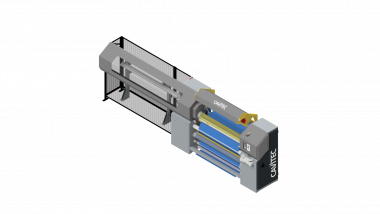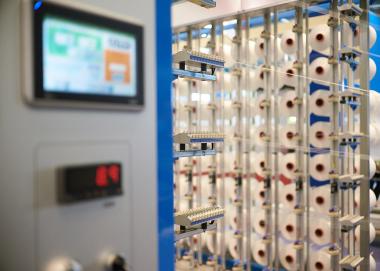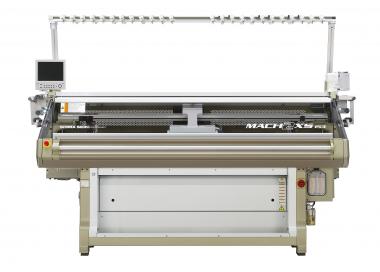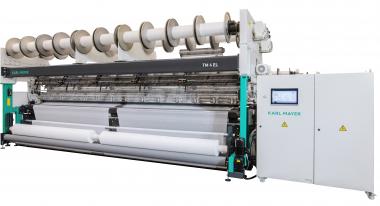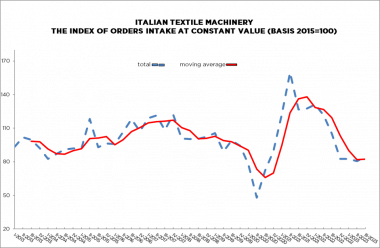Cavitec: Technology for breathable laminates at Techtextil 2024
Cavitec, part of Santex Rimar Group, presents the redesigned Caviscreen at Techtextil Frankfurt. Caviscreen features latest technology for breathable laminates.
Caviscreen was developed as a hotmelt coating and laminating unit for breathable sportswear, rainwear and protective clothing – with and without applying a membrane. The redesigned machine shows a brand-new method to supply adhesive more evenly and precisely. Using PUR adhesive (polyurethane reactive adhesive) goes with additional benefits like strong bonding capabilities and versatility.
Caviscreen’s hotmelt screen printing is a special system for high-end application garments. With this Caviscreen system, a PUR adhesive is transferred onto the substrate through a rotary screen, similar to the well-established textile printing method. The adhesives are fed from the drum melter through a heated hose to the traversing adhesive distribution system inside the rotary screen, just behind the doctor blade.
The adhesive is pressed by the doctor blade through the screen holes and transferred to the substrate. Different dot pattern (mesh or irregularly) and different screen thicknesses allow different coating weight and adhesive coverages.
The traversing adhesive dispenser is used to distribute the adhesive automatically over the set working width that – an additional technical benefit – can be set without any mechanical changes.
Cavitec’s screen coating system achieves high bonding strength while using less adhesive than other coating processes, because of applying the coating on the surface of the substrate and like this, the adhesive has less tendency to penetrate the substrate.
Bonding strength, softness of the fabric and the breathability are defined by the coating weight and the coverage. The rotary screen allows users to regulate and adapt the coverage respectively the coating weight. Cavitec offers a large selection of screens that are essential to fulfil the fabric requirements. A further advantage is the ease and efficiency of switching from one screen to another by simply unlocking the bayonet fitting. The IR-heater cover opens pneumatically and the lightweight screen can be easily removed by hand. Unlike with other methods, there's no need to deal with hot oil or any other heated liquid that requires cooling down.
The Caviscreen technology supports manufacturers by reducing costs with screens priced at a mere fraction, just 10%, of common gravure roller prices.
Aepli Communication GmbH


